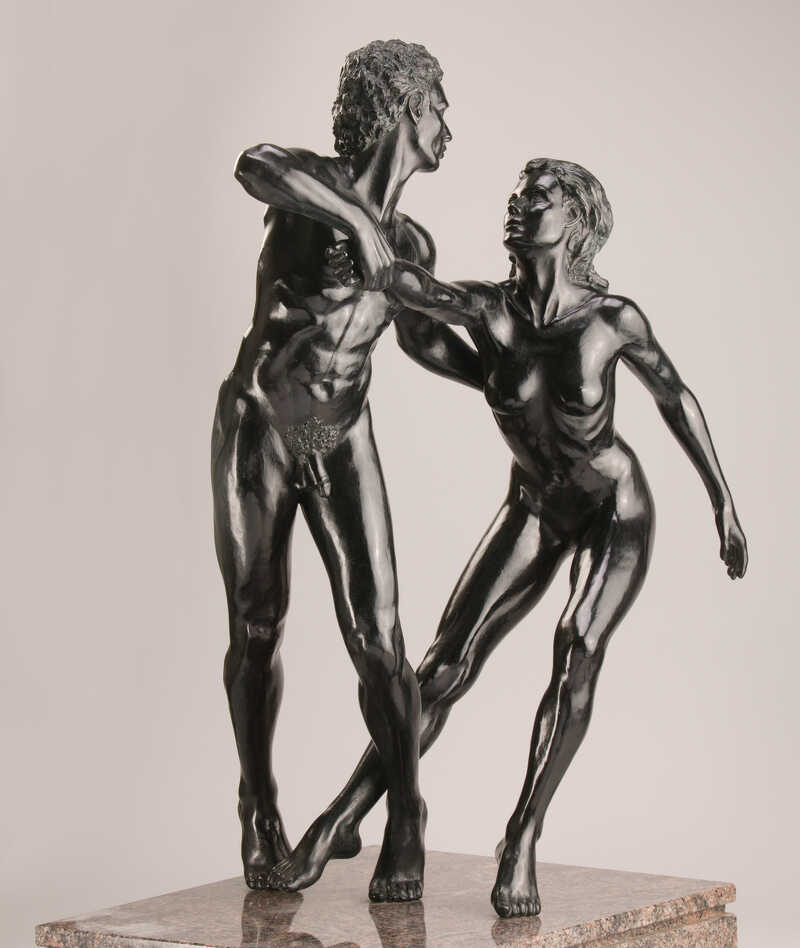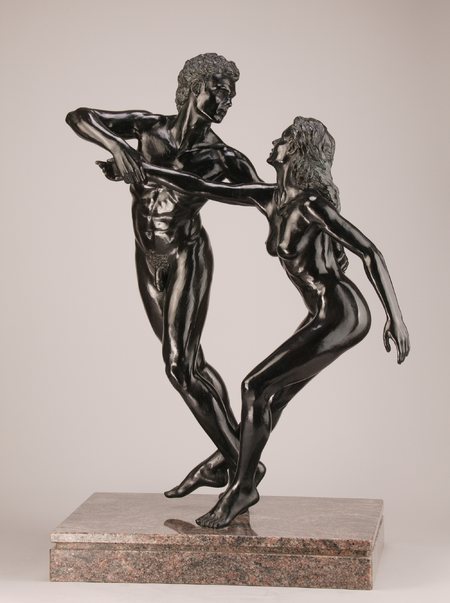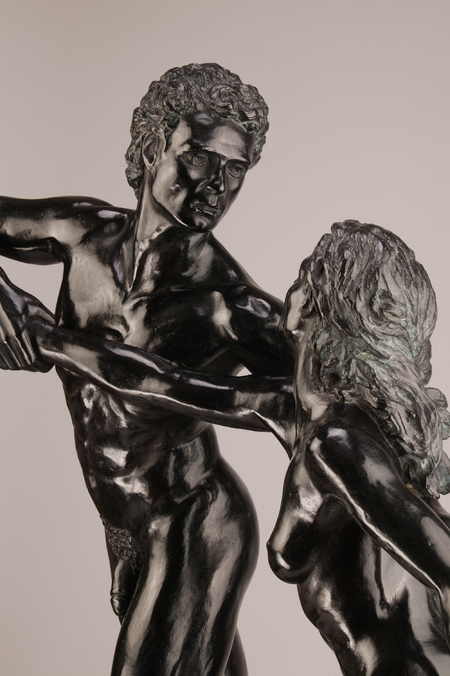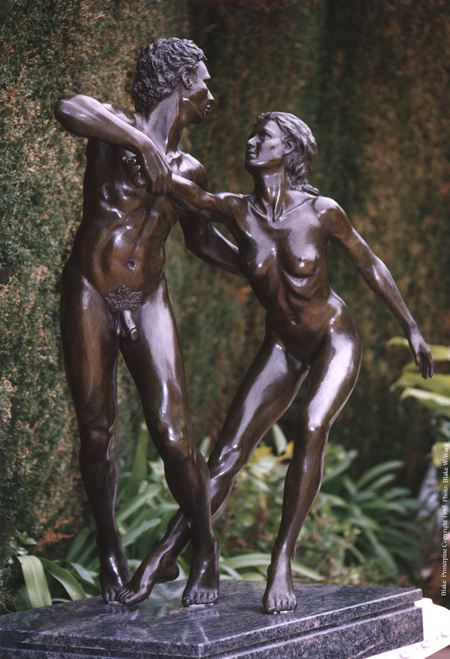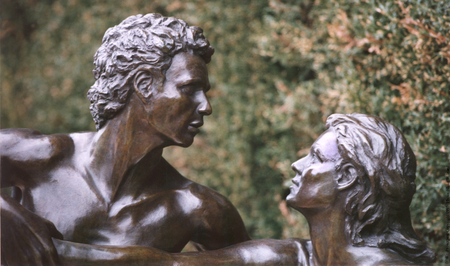The Figure
L’enlevement de Prosperpine
This Sculpture is presently FOR SALE
Please Contact me on my Profile Page BTC and SOL Accepted
This mythological theme is vested with a sensitivity that encourages us to understand Persephine’s dilemma, whilst berating her for deserting us to the uncertainty of changing seasons.
Persephine instinctively resists Hades or Pluto who has been driven to abduct her by his passionate love. However, her adoring gaze contradicts the strong defiance of her rigid body recoiling from his grasp. It is as if she is aware that by leaving the surface of the earth to join him in his domain for half the year, she will plunge the ancient Greek world into the cold desolation of winter. She is torn between her fascination with Pluto and her responsibility to her beloved mankind.
Although this work speaks of the mythological tale of Porserpine, the daughter of Zeus, it also expresses a moment of indecision, where her body refuses, yet in her heart and eyes tell an opposing sentiment.
The Myth
In ancient Greek Mythology, Persephine was the daughter of Zeus and Demeter, the goddess of fertility and the mother of all vegetation. It was also believed that she was the one who instructed mankind in the principals of agriculture. Demeter is associated with the cycle of seasons and became an allegory of death and rebirth.
The legends tell of the abduction of Persephine by Hades while she was gathering flowers on mount Etna. Hades was said to have been so in love with her that he rose from a fissure in that appeared in the ground, and catching her from his golden chariot took her back with him to his Kingdom. The all-seeing Helius, the sun, had witnessed the disappearance of Persephine and with Hectare, who had heard the girl’s cries from the depths of her cave, they alone knew of these events. Her grieving mother, distraught with her loss, wandered the earth alone in search of her daughter, lighting her way with torches at night.
After ten days, Demeter came upon Hectare who spoke to her of what she had heard and Demeter swore that she would never return to Olympus, nor would the earth bear fruit until her daughter was returned to her. She thus cast a plague upon the world and all vegetation withered and died. At this Zeus became concerned for humanity’s wellbeing and sought Persephine’s return. Hermes was dispatched to persuade Hades to surrender his bride, to which he agreed. But before she was allowed to leave, he offered her a pomegranate of which she partook of seven seeds. This act was to bind her to his domain, for it was believed that if a person was to visit the underworld, and partake any sort of nourishment, they would be unable to return to the land of the living.
Upon her return, Demeter was to learn of Hades' trickery and again threatened to withhold the fruits of the earth. To resolve the situation, Zeus sent Rhea to reason with Demeter and it was determined that Persephine would spend only a part of the year in the Underworld. During which time Demeter grieves her daughter’s absence and refuses to allow the earth to produce, only with her return comes the spring and the productive seasons of summer.
Hades is one of the two brothers of Zeus and was allotted the kingdom of the underworld as his share of the spoils. He was an avaricious god who is concerned with the size of his domain and is unwilling to allow any of his subjects to be released. Known as well as the god of mineral wealth, he is the King of the dead, but not the god of death itself. His Kingdom is located within the depths of the earth and life there is likened to a dream, but without hope, joy or light. It is a place of shadows where the inhabitants fade slowly into vacuity and death. Life is a characteristic of existence, more concerned with the presence of souls than the absence of them.
